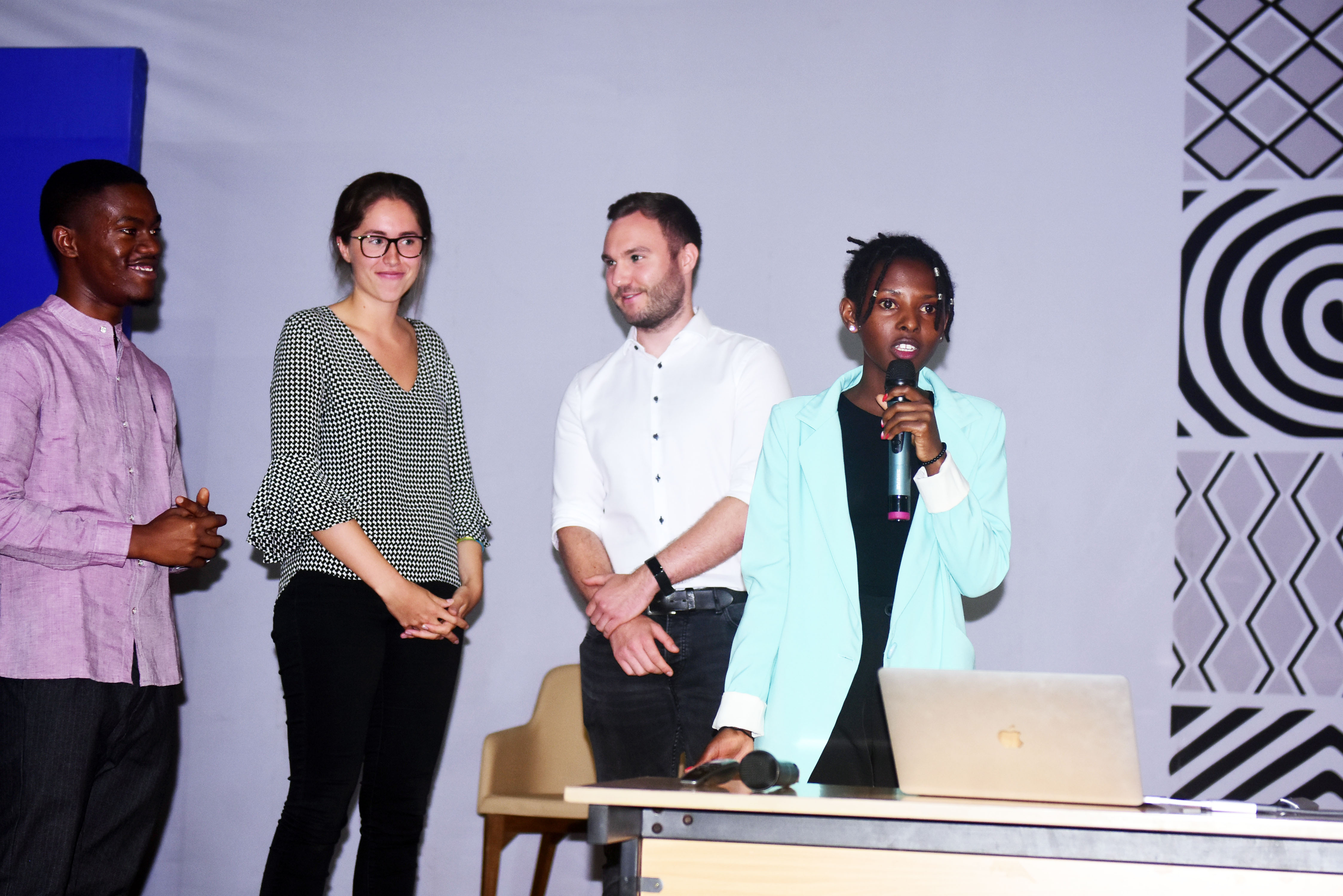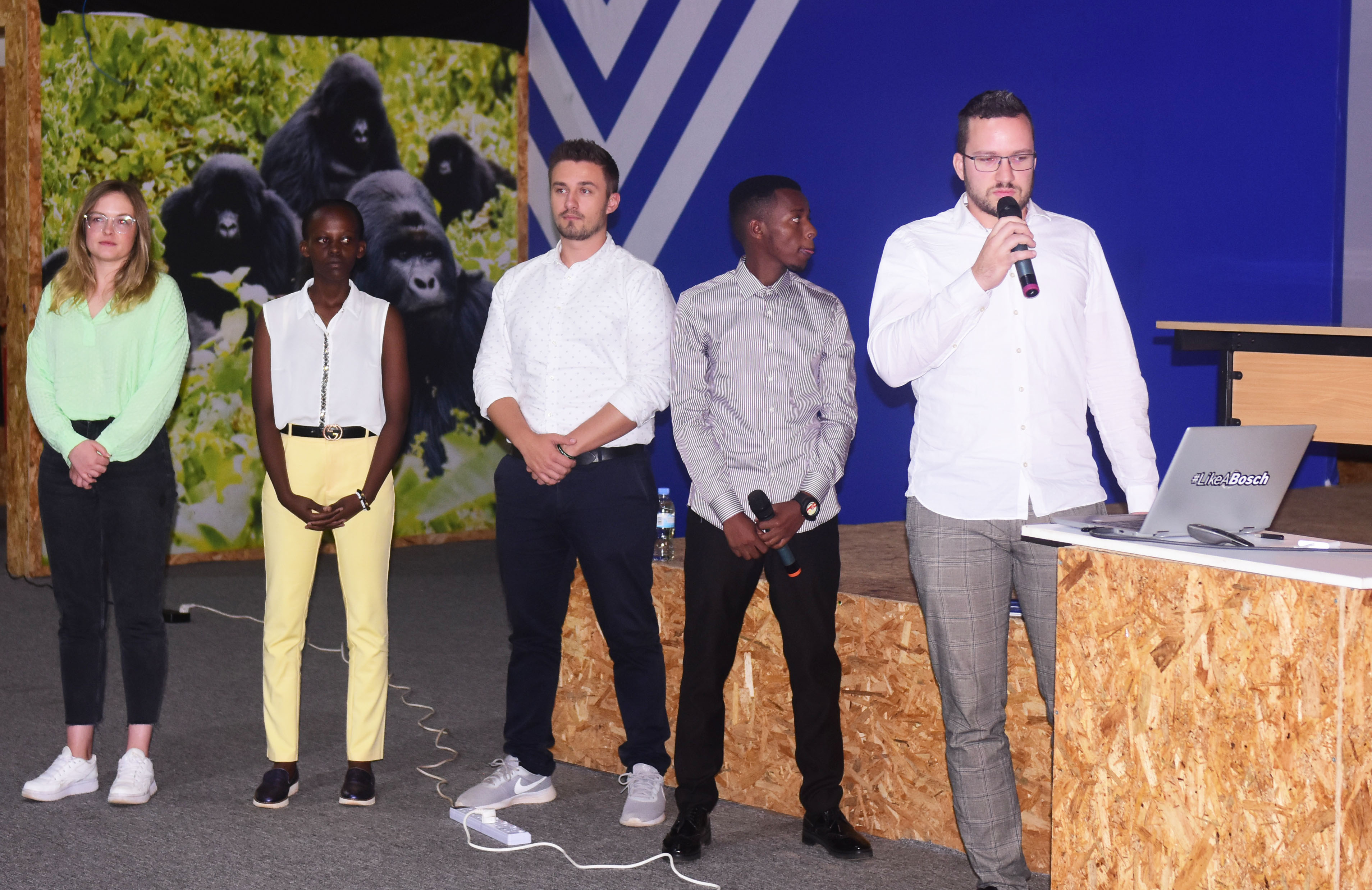
UR-Sweden Symposium showcases innovation-driven solutions to Rwanda’s pressing challenges
- 13-06-2025
- 419
At the University of Rwanda held presentations of innovative research projects from thirty-two (32) students from Heilbronn University and the University of Rwanda. Sixteen students travelled from German along with their supervisors to meet their UR counterparts as part of the existing partnership dubbed Collaborative Online International Learning (COIL). This is an approach that brings students and professors together across cultures to learn, discuss and collaborate as part of their class.

Presentations led by UR student
In the course of presentations, students showcased seven (7) innovative projects to Rwanda’s invited institutions and industry so that they can relate research results to their businesses. Projects were jointly developed under supervision of professors from both universities and were designed in a way to respond to Rwanda’s development needs.
Presentations were officiated by Dr Raymond Ndikumana, the UR Deputy Vice Chancellor for Strategic Planning and Administration. Speaking on the occasion, Ndikumana hailed the partnership that leverages modern technology to provide solutions towards social economic transformation of communities. He added that such partnerships align with UR’s ambition to promote research and academic exchange among universities and hence provide international exposure to their respective students and staff.

Presentation led by student from Heilbronn University
Among the seven research projects presented include a project named “Grain Storage”. This is a project designed to help farmers to reduce postharvest losses while maximizing profit. Other innovative research areas include but not limited to wastewater treatment, Quickticket to allow passengers to search for buses types and lines and buy ticket online for proper travel planning and avoiding queuing.
The joint Program is funded by German Academic Exchange Service (DAAD). It generally seeks to promote Internationalization through digitally enriched active study preparation and collaborative learning. The Program is designed in a way that professors partner among themselves to design the experience, while students partner to complete the activities designed. This approach becomes part of the class, enabling all students to have a significant intercultural experience within their course of study.